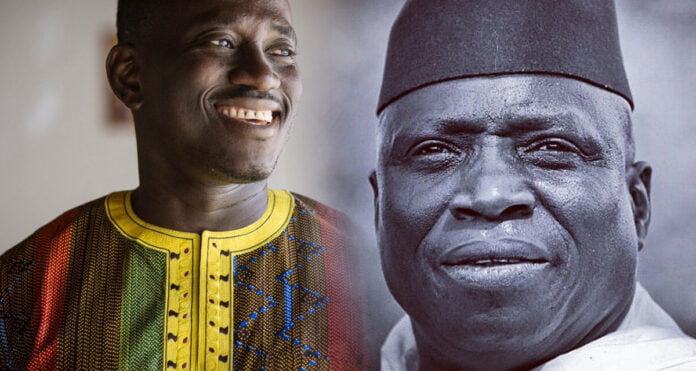Dear Editor Mbai,
Yahya Jammeh’s diatribe against the UDP’s alleged “Mandinka tribalism” has been widely condemned, rightly. Some seven years ago it was Yahya Jammeh’s mouth-piece, today UDP Commando Momodou Sabally, who expressed similar sentiments against the Mandinka on GRTS – and he too was widely condemned.
The reason why it is right to condemn such utterances is that they inflame the very problems that they condemn: in other words, those who condemn “tribalism” in one groupmake it worse amongst all groups. What is to be condemned is tribalism generally, as a matter of principle. That said, action is better than words.
As someone once said: “Don’t blame the darkness, just light a candle”. For example, President Barrow did not make a speech about the fact that there was no Jola in the 2017 Cabinet – he just quietly acted to rectify the situation by appointing Youth & Sports Minister Badgie. I don’t know about the UDP’s National Executive composition now, but during Jammeh’s time two of the most prominent were Shyngle Nyassi rip (a Jola) and Femi Peters rip (an Aku).
Racism in the West is similar to “tribalism” in Africa. What we have done here in UK is try to include in all sectors of our society members of all ethnic groups that today make up “The British”. For example, we have a white Prime Minister in Boris Johnson, but the next two most powerful people in the current UK government are children of immigrants: The Treasury Minister and Home Secretary. The Business Secretary is from Ghana. The Education Secretary is, I think, of Pakistan origin and a Muslim. The Mayor of London is the son of a Pakistani bus driver. This is to be contrasted with the USA where strict segregation and exclusion of African-Americans continued for over 300 years (most British ethnic minorities have been here for only two generations – no more than 50 years).
Similarly, Kenya has gone out of its way to include all tribes in the government of the country (partly because of the terrible experience of the 2007 violence that saw Uhuru and Ruto end up at the ICC). In the case of Gambia, where there is far more inter-mixing, co-existence and harmony between the tribes than in many other countries, it should be easier to include all ethnic groups in the governance of the country and in the sharing of national resources.
For example, we have a rough idea of the percentage each group within society and it should be a simple matter to ensure that all members of the community are represented in all sectors of society: for example, if Serahules make up 5% of the population, we should strive to ensure that Serahules make up about 5% of the Cabinet, etc, etc. No sector of the society should exclude any groups that make up the society (this is why the UK census and even job application forms ask about your sex, “ethnicity” and religion – to ensure that resources, services and jobs are shared as fairly as possible: thus my daughter who is lucky enough to be female, black, Muslim and well-educated would tick 3 boxes for an equal opportunities employer!).
Exclusion of any group is dangerous to society: it led to the Rwanda genocide when the Tutsis were excluded; and it is tearing Ethiopia apart today because the various tribes can’t decide how to share their country in harmony. Both Conakry and Nigeria are currently grappling with the same issues too.
It is therefore better to “minimise” Jammeh’s negativity and “maximise” the positivity of togetherness and inclusiveness. Let us not “blame the darkness”, but instead “light a candle” – a powerful candle whose light can be seen even from Equatorial Guinea.
Dida Jallow-Halake,
Notting Hill, London.


